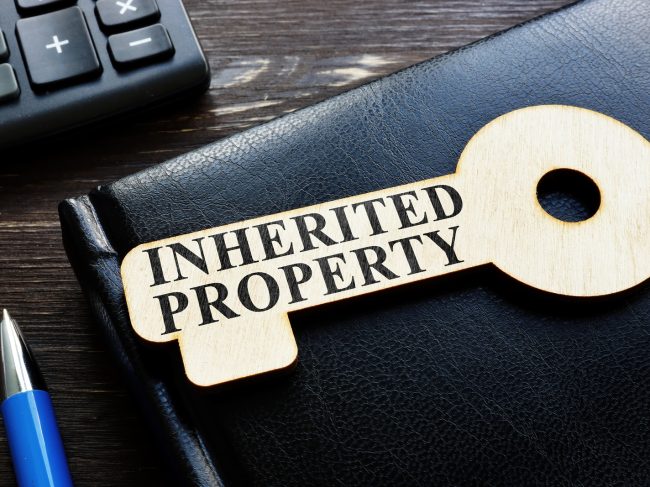“I want to sell my house fast Wichita KS” you’re thinking. But, are you aware that the average time it takes to sell a house in Wichita, KS is around 60 days? If you’ve recently inherited a property and need to sell it quickly, you might be feeling overwhelmed. But don’t worry, we’re here to help.
In this discussion, we’ll explore effective strategies and provide guidance on handling inherited properties, specifically in Wichita, KS. Whether you’re navigating the probate process, deciding between selling or renting, or dealing with the emotional impacts, we’ve got you covered. So, if you’re looking for valuable insights and tips on how to sell your house fast in Wichita, KS, keep reading to discover the best options available to you.
Guidance on dealing with Inherited Homes
If you have recently inherited a home, we understand that this can be a challenging and overwhelming experience. One of the first things you may need to consider is the impact of inheritance taxes. It is important to familiarize yourself with the tax laws in your area to understand your financial obligations.
Estate planning is crucial to ensure a smooth transition of the property. Hopefully there will be a will or trust that clearly outlines the deceased’s wishes and designates beneficiaries. Once the legal matters are taken care of, you will need to decide how to manage the property.
Selling to investors can be a quick and convenient option if you are looking to liquidate the asset. Alternatively, selling to family members may allow you to keep the property within the family. Whichever route you choose, it is important to carefully consider your options and seek professional advice if needed.
Understanding the Probate Process
Understanding the probate process is essential when dealing with inherited properties, as it outlines the legal steps and requirements for transferring ownership of the property to the rightful beneficiaries. The probate process involves several key elements, including legal requirements, executors’ responsibilities, distribution of assets, probate timeline, and estate taxes.
- Firstly, the probate process involves fulfilling legal requirements, such as filing the will with the court and notifying all interested parties. This ensures that the property is transferred in accordance with the deceased person’s wishes.
- Secondly, the executor of the will has certain responsibilities during the probate process. These responsibilities include gathering and valuing assets, paying debts and taxes, and distributing the remaining assets to the beneficiaries. Executors must adhere to a strict set of guidelines to ensure a fair and accurate distribution.
- Thirdly, the distribution of assets is a crucial aspect of the probate process. The executor must follow the instructions outlined in the will to allocate the property to the rightful beneficiaries. This may involve selling the property and distributing the proceeds or transferring the property directly to the beneficiaries.
The probate timeline can vary depending on various factors, such as the complexity of the estate and any legal disputes. It is important to be aware of the potential timeline to properly plan for the sale of the inherited property.
Lastly, estate taxes may need to be considered during the probate process. Depending on the value of the estate, there may be estate taxes that need to be paid before the property can be transferred to the beneficiaries.
Understanding the probate process is crucial when dealing with inherited properties. By navigating through the legal requirements, fulfilling the responsibilities of the executor, ensuring a fair distribution of assets, being aware of the probate timeline, and considering estate taxes, you can successfully transfer ownership of the inherited property to the rightful beneficiaries.
Deciding Whether to Sell or Rent
When deciding what to do with an inherited property, it’s important to carefully consider whether selling or renting would be the best option for you. Renting out the property has its own benefits, such as generating a steady stream of income and potentially increasing the property’s value over time.
By renting, you can take advantage of the rental market and potentially earn a higher return on your investment. However, renting also comes with responsibilities such as finding a reliable and trustworthy property manager who can handle the day-to-day operations of the property.
Additionally, you should be aware of the tax implications associated with renting out the property. Rental income is subject to taxation, and you may also be eligible for deductions related to property management expenses. It’s useful to consult with a tax professional to understand the specific tax implications in your situation.
Maintaining inherited properties can also be time-consuming and costly. Regular maintenance, repairs, and dealing with tenant issues can be a significant burden. Before deciding to rent, it’s important to conduct a thorough rental market analysis to ensure that the rental income will cover the expenses and yield a profitable return.
Ultimately, the decision to sell or rent an inherited property depends on your financial goals, circumstances, and personal preferences. It may be beneficial to weigh the benefits of renting against the potential challenges and consider seeking advice from professionals in the real estate and financial industries to make an informed decision.
Navigating Emotional Impacts

Navigating the emotional impacts of deciding what to do with an inherited property can be a challenging process. Handling grief is a natural part of this journey, as it often involves letting go of a loved one’s possessions and memories. It’s important to give yourself time and space to grieve before making any major decisions.
Seeking professional help can be beneficial during this time. Consider consulting with a financial advisor or real estate agent who specializes in inherited properties.
Managing family dynamics is another aspect to consider. Inherited properties can sometimes cause conflicts among family members. It’s important to have open and honest communication, and to involve all parties in the decision-making process. This can help alleviate tensions and ensure that everyone’s concerns are heard and addressed.
How to Sell My House Fast Wichita KS
To sell your house quickly in Wichita KS, consider working with a reputable cash buyer who can provide a fair and competitive cash offer within a short timeframe. When looking to sell your house fast, it’s important to explore all your options.
Another option is to consider renovating your property to increase its appeal and value. By making strategic updates and improvements, you can attract more potential buyers and potentially sell your house faster.
Additionally, implementing effective marketing strategies is crucial in selling your house quickly. Utilize online platforms, social media, and professional photography to showcase your property’s best features and reach a larger audience. Setting competitive prices is also essential in attracting buyers and selling your house fast.
Research the local market and compare similar properties to determine a fair and attractive price. Lastly, when negotiating offers, be open to reasonable offers and consider any contingencies that may affect the sale.
Frequently Asked Questions
What Is the Process for Transferring Ownership of an Inherited Property in Wichita, Ks?
To transfer ownership of an inherited property in Wichita, KS, you’ll need to navigate the legal process of probate. Once that’s complete, you have selling options to consider, such as determining market value and finding a buyer.
Are There Any Tax Implications When Selling an Inherited Property in Wichita, Ks?
When selling an inherited property in Wichita, KS, there may be tax implications to consider. These can include capital gains tax, inheritance tax, and estate tax. Consult with a tax professional for guidance on potential deductions.
Can I Sell an Inherited Property in Wichita, KS if it is in Poor Condition?
Yes, you can sell an inherited property in Wichita, KS even if it is in poor condition or needs repairs. Cash buyers, such as Kansas Property Solutions, buy houses in any condition and offer fast, fair cash offers.
What Are Some Common Challenges When Selling an Inherited Property in Wichita, Ks?
When selling an inherited property in Wichita, you may face challenges like dealing with repairs, finding buyers, and navigating legal processes. However, with Kansas Property Solution’s expertise and quick sale process, we can help you overcome these obstacles and sell your house fast.
Are There Any Specific Legal Requirements When Selling an Inherited Property in Wichita, Ks?
It’s important to understand the selling process, potential tax implications, and consider the property’s condition.
Conclusion
Inheriting a property can be a daunting task, but with our help, you can sell your house fast in Wichita, KS without the hassle. Our fast, fair cash offers and seamless transaction process will ensure a stress-free experience. Trust our solid reputation and years of experience in the real estate industry to provide you with accurate and competitive offers. Don’t wait, call Kansas Property Solutions today at (316) 226-9560 for a quick and efficient selling process.




